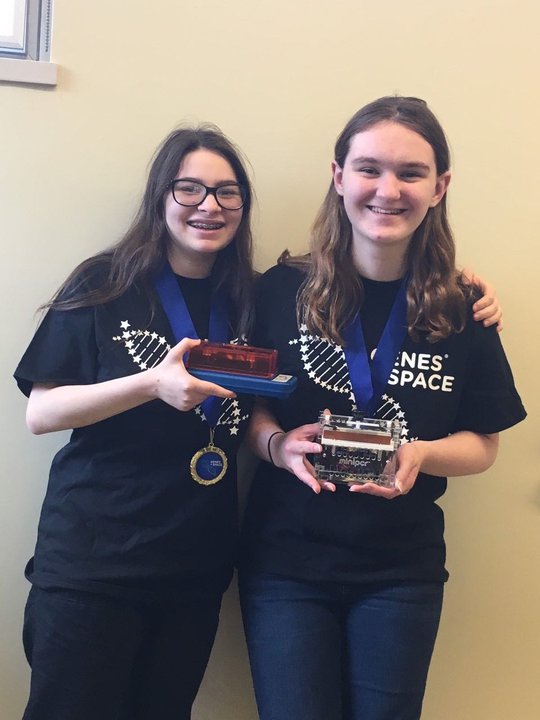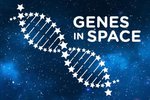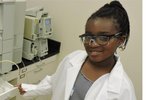GiS Spotlight: 2018 Honorable Mentions Rose Swan and Rachel Baron
Each year Genes in Space awards ten Honorable Mentions to teams whose proposals display remarkable scientific rigor and creativity. Rose Swan and Rachel Baron attend Bergen County Academies in New Jersey. Here they describe the process they used to develop their award wining Genes in Space proposal.

Briefly explain your experiment:
Genes of an Influenza virus exposed to cosmic rays on the ISS are periodically amplified using PCR, sequenced, and any mutations analyzed.
Why did you choose to participate in Genes in Space?
Our second trimester Biology project was a submission to the Genes in Space competition. We wrote it in installments and submitted each “benchmark” to our Biology teacher as we went along.
How did you choose your topic?
The first benchmark for the assignment was for each member of the team to think of a possible topic. Rachel’s original idea was to study the mutation of HIV when exposed to cosmic rays, and our teacher suggested that we use her idea but with a less dangerous virus.
What did you gain by participating in Genes in Space?
We gained an understanding of how gel electrophoresis and PCR work, and we both learned more about how the influenza virus functions.
Do you have any advice for future Genes in Space contestants?
Half the battle is finding a good idea to go with; search for a topic that is relevant or applicable to the real world. Try not to get ahead of yourself and accept that a more complex experiment is not necessarily a better one. Think through every step of an experiment as you plan it, and don’t leave any process unaccounted for.


